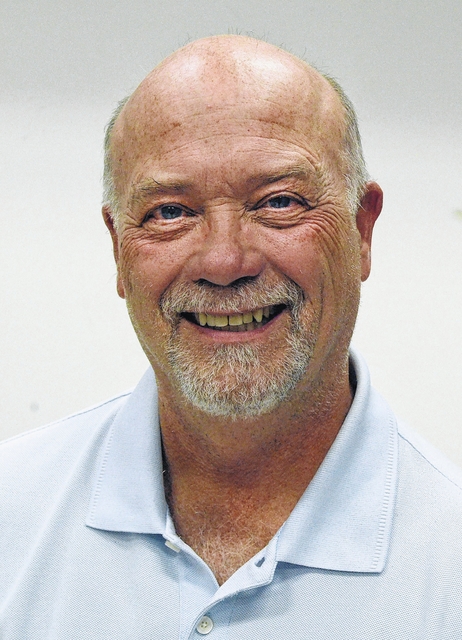To an inveterate golfer like my friend of over 60 years, Mike Schepp, and my sis, Joanie, there is one word never to be uttered, for the thought is that were it spoken, it would somehow manifest itself in their games. That word, “shank,” describes striking the ball on the innermost part of the clubface, causing it to squirt off to the side just a short distance.
Now, to a writer, there’s also a term considered verboten to speak so as not to encourage its worming its way into the process, “writer’s block.”
But, for me, the term crosses my mind every time I’m at the kitchen sink washing a few dishes. While I do have a dishwasher, I haven’t put the first dish in it since the three ladies who once lived with me went off to seek their fortunes, two expectedly, and one, not so much, and that was a very long time ago. A plate, glass, knife and fork, I can wash and dry in less than three minutes.
As for why I think about writer’s block when I’m at the sink, I can thank Lady Jane’s daughter Liz for that. On one of her pleasurable sojourns, she bought me the knickknack that now sits on the sill. The item is a real bar of soap, and on the label it says, “Soap for Writer’s Block … Zaps implausible plots, eliminates derivative work, better for your liver.”
The reference to the soap’s being better for your liver isn’t all that surprising considering the fact that the soap is manufactured by the Whiskey River Soap Company. As far as a hindrance that inhabits free-flowing writing, well, it’s a hurdle sometimes pretty daunting, both for beginning writers like the ones I once taught and also for writers who’ve been scribbling for quite some time.
The first item on that label, “zaps implausible plots,” really has more to do with writers of fiction. For me and the type of writing I’ve done, I really don’t need to invent plots. Both of the books I’ve done are biographies.
The first is on local now-retired entrepreneur Harold Breidenbach and his remarkable journey through three different children’s homes after he and his sister Judy were removed from a home environment deemed unfit and became wards of the Probate and Juvenile Division of the Hardin County Courts.
As for the second book, the life’s journey I chronicled is that of College Football Hall of Fame coach Dick Strahm. The Former University of Findlay coach whose teams won four NAIA National Championships, in between running one of the most successful small-college football programs in the nation, faced and defeated cancer, heart attack and stroke.
These men provided me with plenty of material, so the linear storylines advanced without my having to sit scratching my noggin while trying to figure out a credible plot that would suspend the reader’s disbelief.
As for the magazine and newspaper work I’ve done over the years, I know what I want to say about a topic before I begin. And, if I’m telling a story, either my own or someone else’s, I know in advance how it ends. So, I really don’t fret a bit about implausible plots. As for topics to cover and stories to tell, well, I’ve always found the world is full of them.
During my undergrad times at Miami University, I did take a couple of short story classes and really struggled. Truth be told, I didn’t produce any I thought were keepers. That’s why I have the utmost respect for writers of fiction like Don Bruns, who’s made quite a name for himself in the mystery genre.
As for that derivative work that the bar of soap is supposed to eliminate, that also wouldn’t apply to the type of writing I do since I’m not translating another writer’s work to secure a copyright.
In an article entitled “Is It Real? 25 Famous Writers on Writer’s Block,” the article’s author, Emily Temple, refers to writer’s block as “the dreaded, insidious, much-mythologized affliction.” I found the article from 2018 very interesting, reading the thoughts of contemporary writers like Toni Morrison and Maya Angelou and the great writers from long ago like Mark Twain and Ernest Hemingway.
It was Hemingway who offered advice that was most relatable to me because of its simplicity. As for how to avoid blocks, he said, “The best way is always to stop when you are going good and when you know what will happen next. If you do that every day, you will never be stuck.”
And, that’s how this column was completed, in four different sittings during my best writing time of the day, which is between five and seven in the morning before I leave for work. The process began with lifting that bar of soap off the sill, examining the label and grabbing that first sheet of paper, and I never stopped without knowing what my next paragraph was going to be.







